Justice
Break the Prime Directive or let Wesley Crusher die? Easiest choice ever!
The Enterprise discovers a planet that's "unusually lovely" but looks an awful lot like Star Fleet Academy will in four seasons time. Surely nothing sinister could possibly be lurking under the surface of such a paradise(!). Better send in an Away Team consisting of four of the bridge crew plus Wesley Crusher in a terrible brown cardigan. Suddenly, to ensure a cliff-hanger as we go to commercial, a ghostly space station appears! It burps out a glowy ball probe to say 'hi, can I borrow a cup of android?'
Meanwhile, the Away Team discovers that the punishment for even the silliest of crimes is death. Their first thought? Better round up Wesley Crusher before he gets himself killed. Whoops, too late, he's trampled some flowers. Death, then. Frankly, the cardigan alone warrants execution. But no, we have multiple acts of hand-wringing and chest thumping before inevitably they all beam up and warp away, thankfully never to return.
Words
'God' does a far bit of work in this script, which is not surprising as we're in the oh-so-familiar classic Trek territory of god-like entities once again. The Edo's god is a fair step down from Q, though, and the comparison is hard to avoid given the judicious use of 'child race', which calls back to Q's remarks in "Encounter at Farpoint".
It's another of those scripts where 'the Prime Directive' is the main load-bearing concept... oddly, Picard jumps straight to breaking it, and largely resists doing so only out of fear for what space god might do in retribution. Still, although they don't give Patrick Stewart much to work with in terms of acting, the script does contain some solid ethical observations. Data asks: "Would you choose one life over one thousand, sir?" to which Picard replies "I refuse to let arithmetic decide questions like that!"
This is a direct objection to what’s known as ‘consequentialism’, an early twentieth century bastardisation of ethics that attempts to reduce moral decisions to mere calculation. Of course, we'd already had this theme played out more elegantly in Star Trek III: The Search for Spock, where Spock's consequentialist logic is overruled because "the needs of the one outweigh the needs of the many." But this script doesn’t fall for an overly simplistic rule-based version of ethics, either. Picard later states: "There can be no justice so long as laws are absolute. Life itself is an exercise in exceptions."
So while this episode has very little going for it, these brief interjections of moral reflection are a reminder that the Federation's ethics in this show have their heart in the right place. The writers avoid the simplistic moral reasoning that would substitute mathematics for principles or values, while recognising that distinct ethical systems will inevitably come into conflict, and rejecting any absolute appeal to law as overly simplistic. If only twenty first century humans had retained any sensitivity to these issues!
Acting Roles
There's not a great deal of acting in this episode, but the script still has a few charming moments. Worf, for instance, has a lot of lines foreshadowing future scripts.
The deadpan "Nice planet" prefigures his platitudes in "The Survivors", and his remarks to Riker about needing a Klingon woman for love mirror the conversation he will have with Guinan in "Yesterday's Enterprise". Oddly, I cannot find this exchange anywhere in Worley Thorne's original script, so it seems as if it was added during shooting.
"Do not interfere with my children below" is delivered nicely by whoever the voice actor was (nobody seems to have made a note). The script names this character 'Edolord', and it’s arguably the most Old Testament god-like entity any Star Trek show has put on screen. But it's hard to take this acting role seriously, since it mostly just lurks in the background as an ill-defined threat.
Models, Make-up, and Mattes
In the original version of the episode, the planetary matte painting is very blurry, but in the re-mastered version it's been completely replaced with a classier planet that I suspect was either computer-generated or computer enhanced.
The glowy ball of light probe feels very classic Trek, especially when it speaks in its boomy god-like entity voice. Less impressive is the sparkly effect when it passes through walls and floors, but is scarcely matters.
But the big star model this week is the Edo's 'god', which will crop up again in season five's "Conundrum" as the Lysian central command, a role that feels better suited to this design than that of space god.
It's nicely irregular, but the patterns of lights on its hull - and the fact that it visibly has a hull - makes it feel much more like a space station than anything else. Here’s what it looked like behind the scenes:
The idea behind this studio miniature seems to have been to evoke some kind of 'machine-god'... perhaps the script could have done more work with this to make it play. Other than the look of the model, the only other thing that leans in this direction is its willingness to interface with Data.
Finally, hat tip to the 'Starboard lounge', which are the crew quarters set remodelled to work as a meeting space. They only appear in this one episode. Why didn’t they use the Observation Lounge, which appears time and again throughout the show as a conference room…? I suspect it has something to do with there being no permanent set for the Observation Lounge during season one. Instead, it was swapped around with sickbay when required. This screenplay expressly asked for ‘Starboard Lounge’ as a location, but it also asks for Sickbay - so the most likely explanation is that they couldn’t have both locations in one episode because both locations shared Sound Stage 9! And on a ship as large as the Enterprise, there’s always previously unseen locations waiting in your back pocket to plug an inconvenient gap in the production logistics…
Special thanks to Dukhat for sourcing the picture of the Edo God studio miniature.



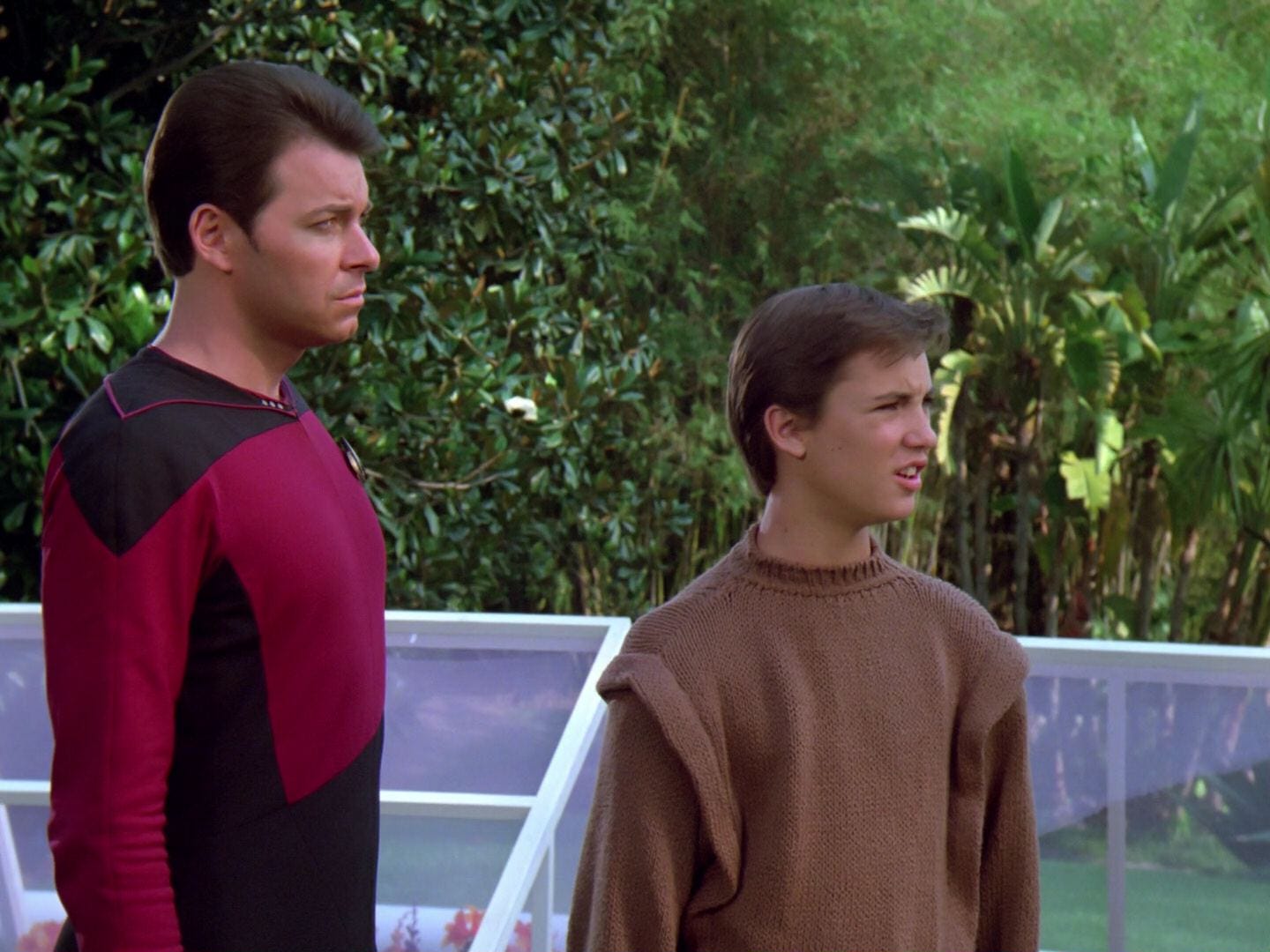
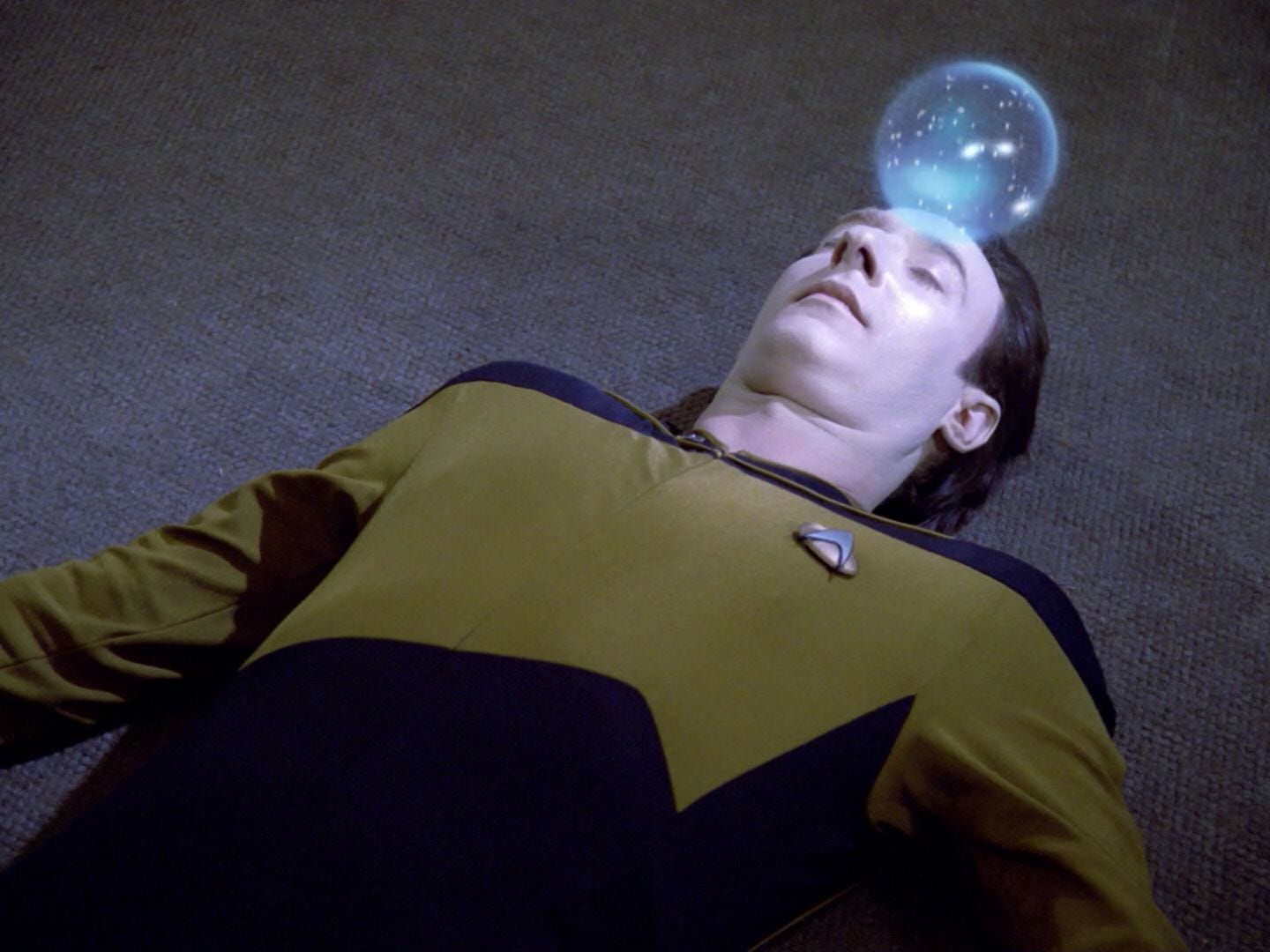
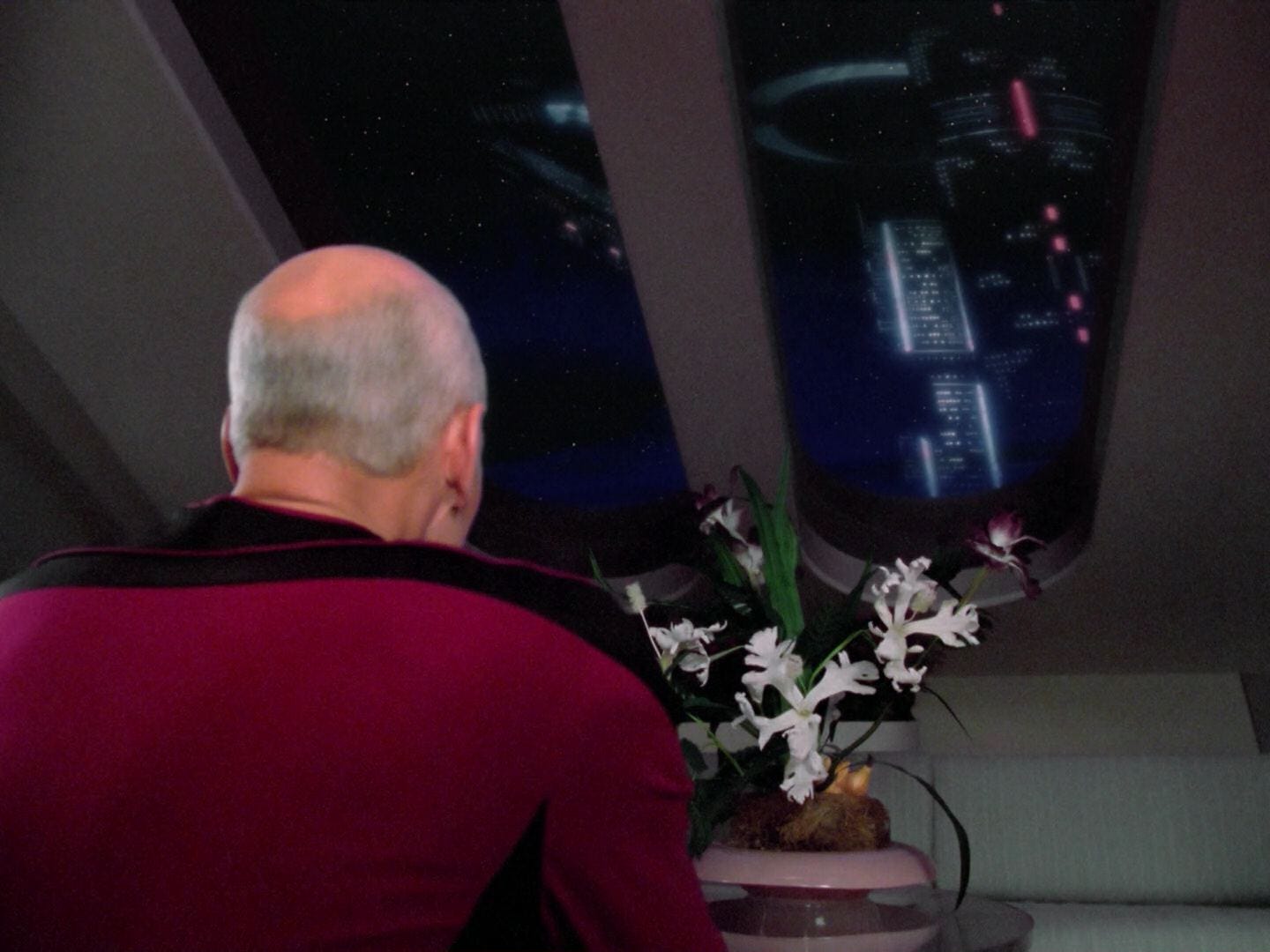
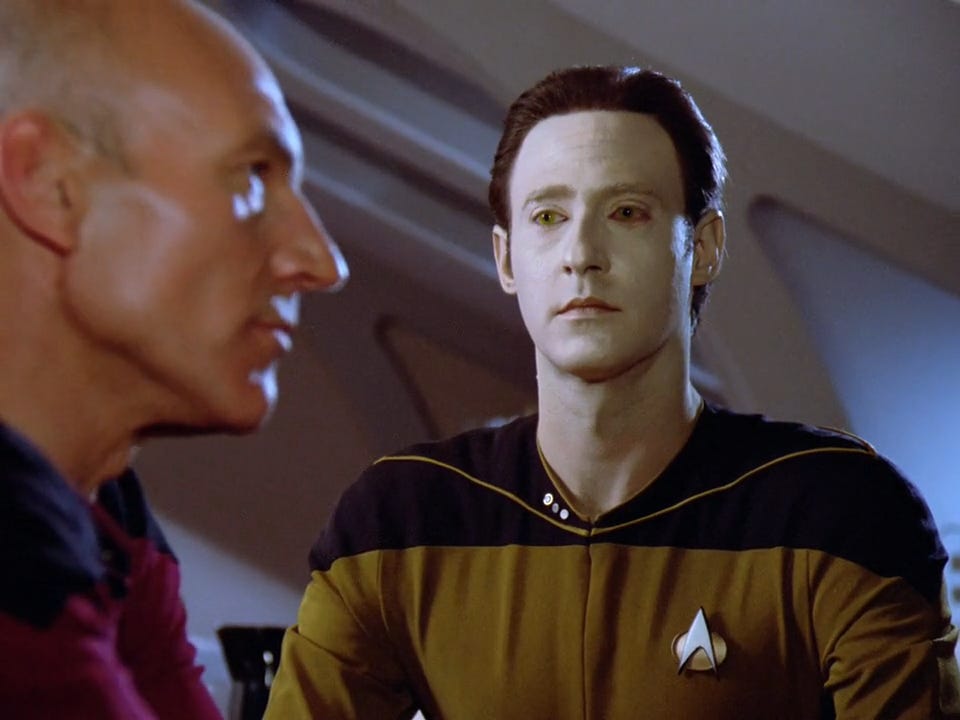
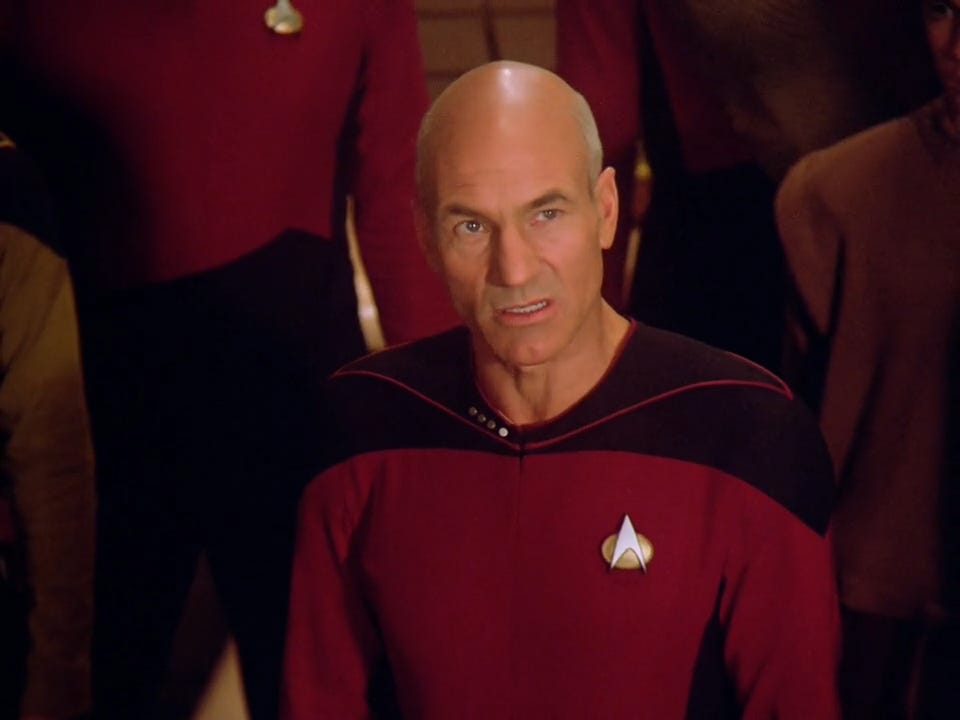
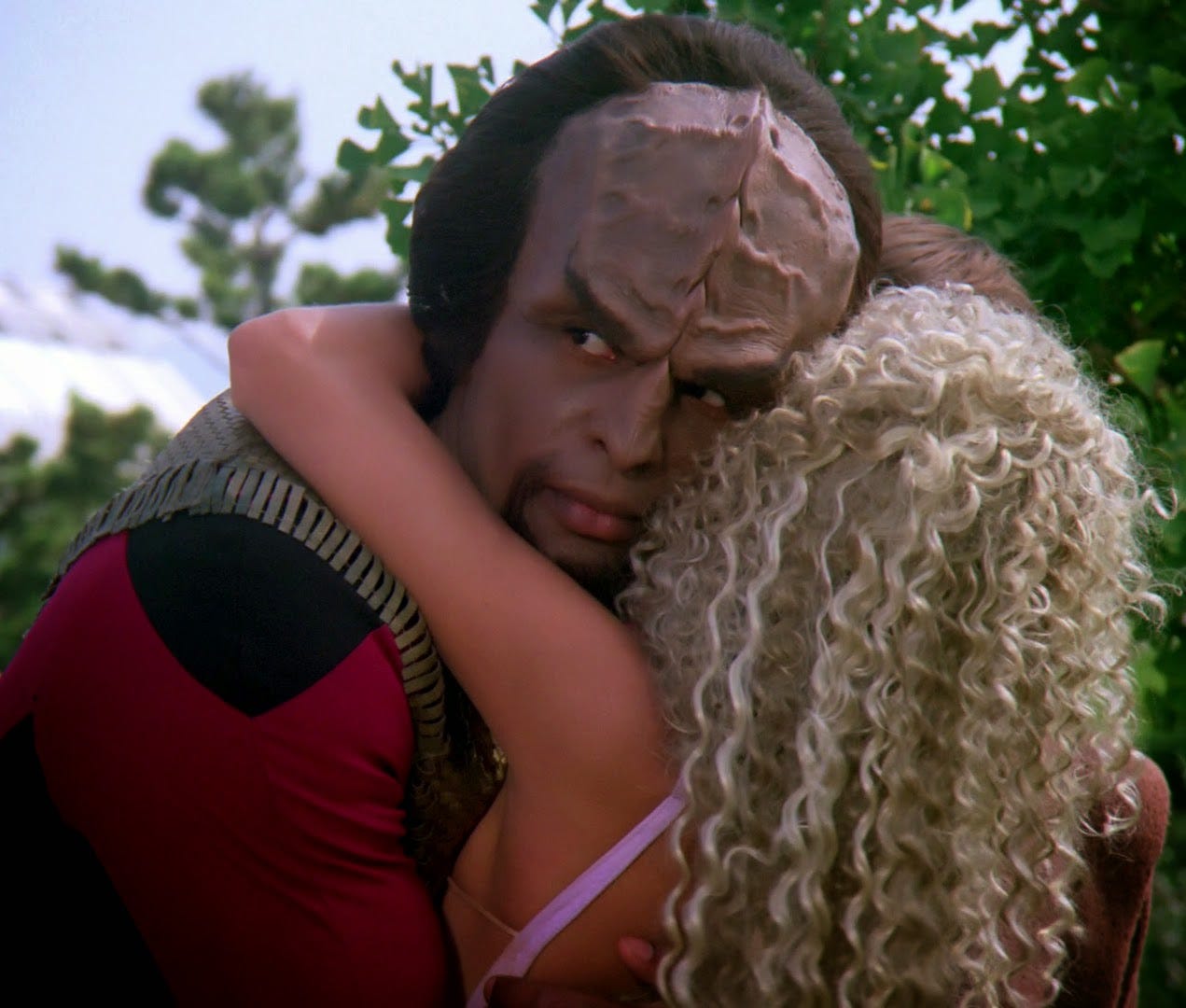
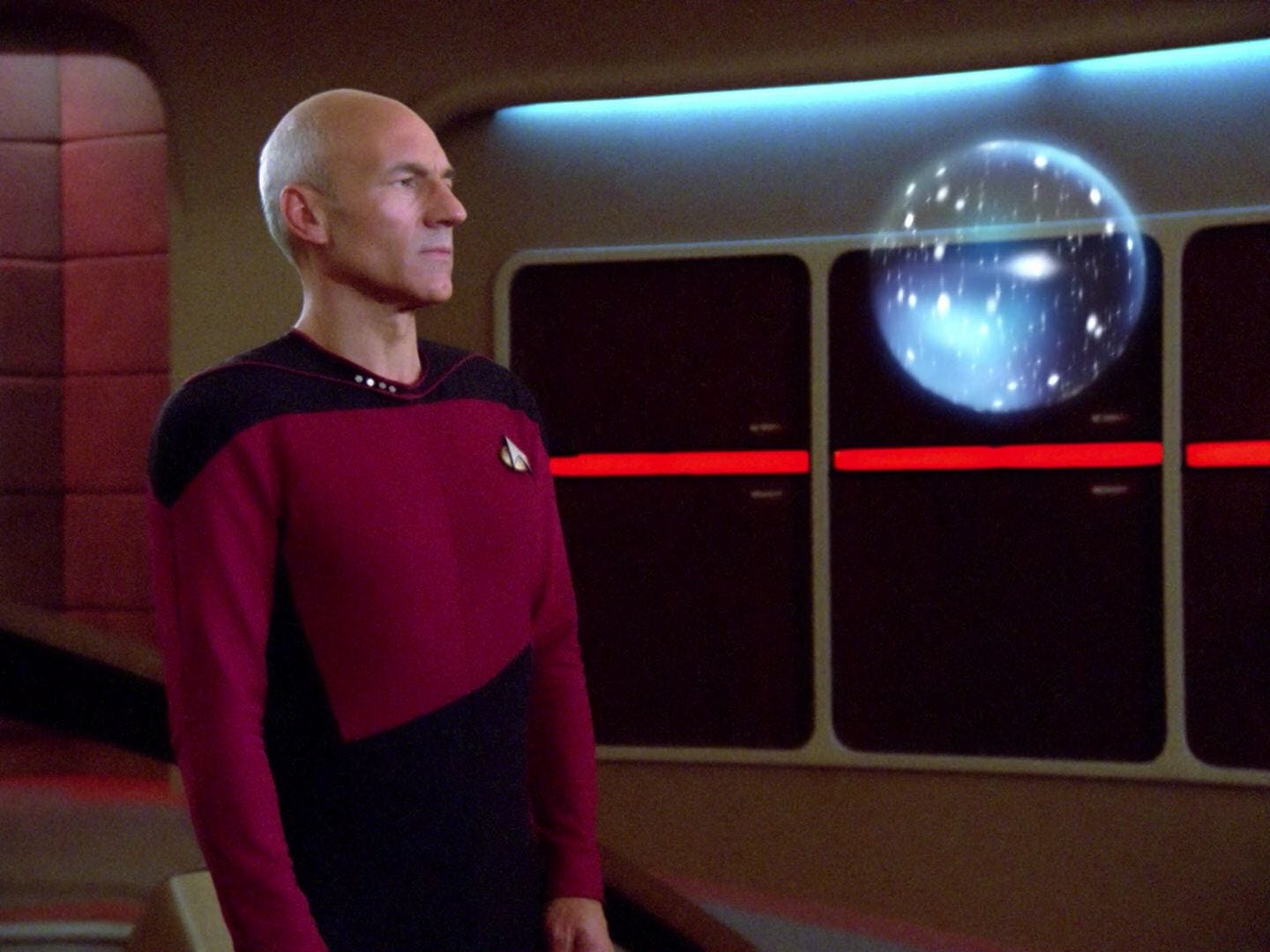
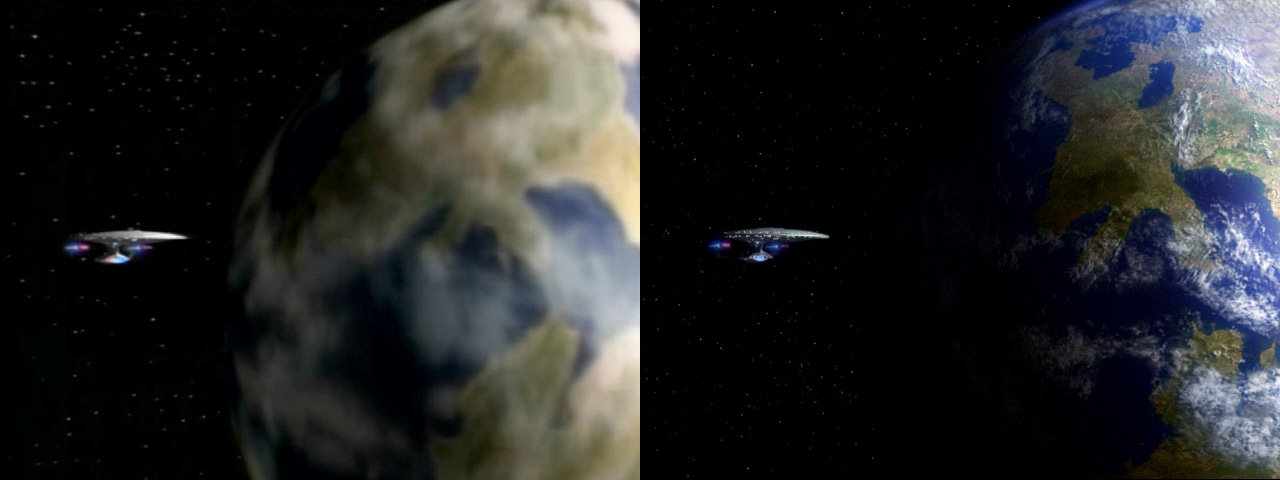
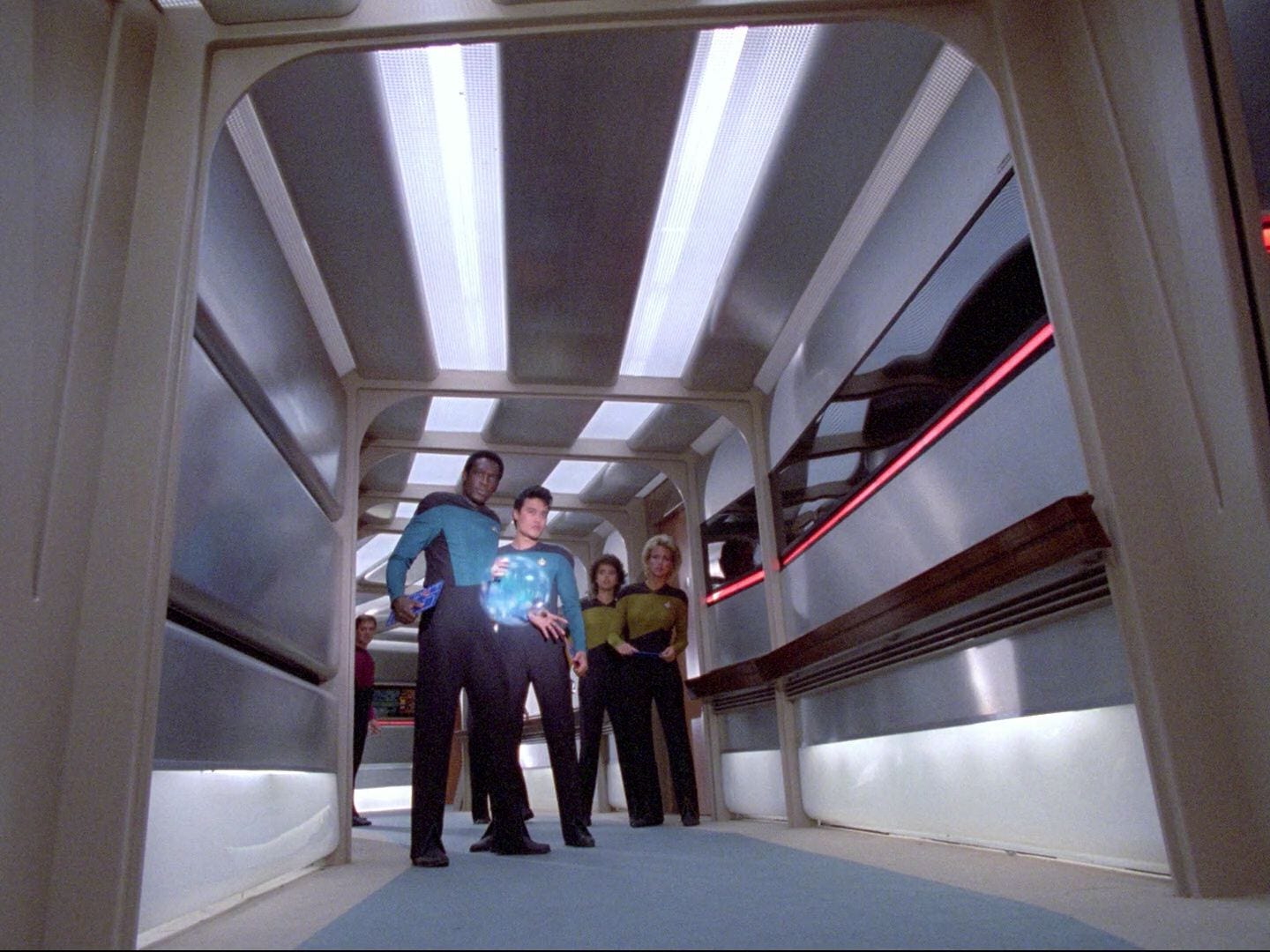
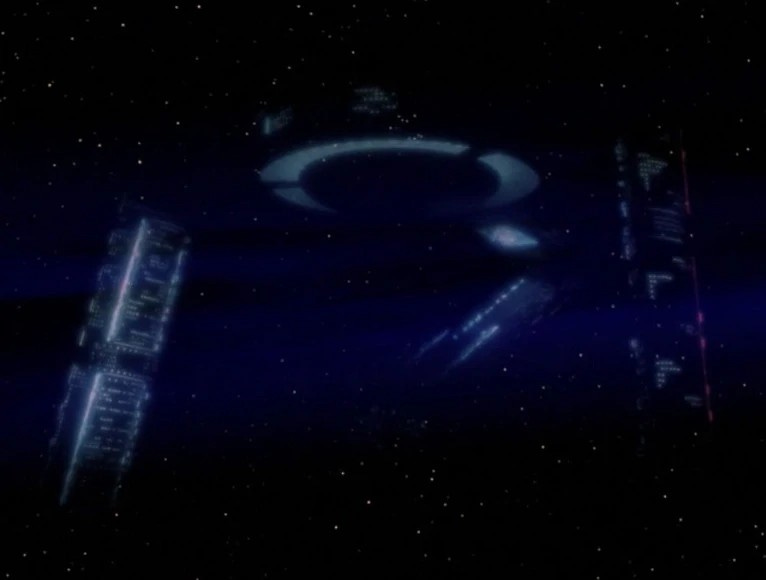
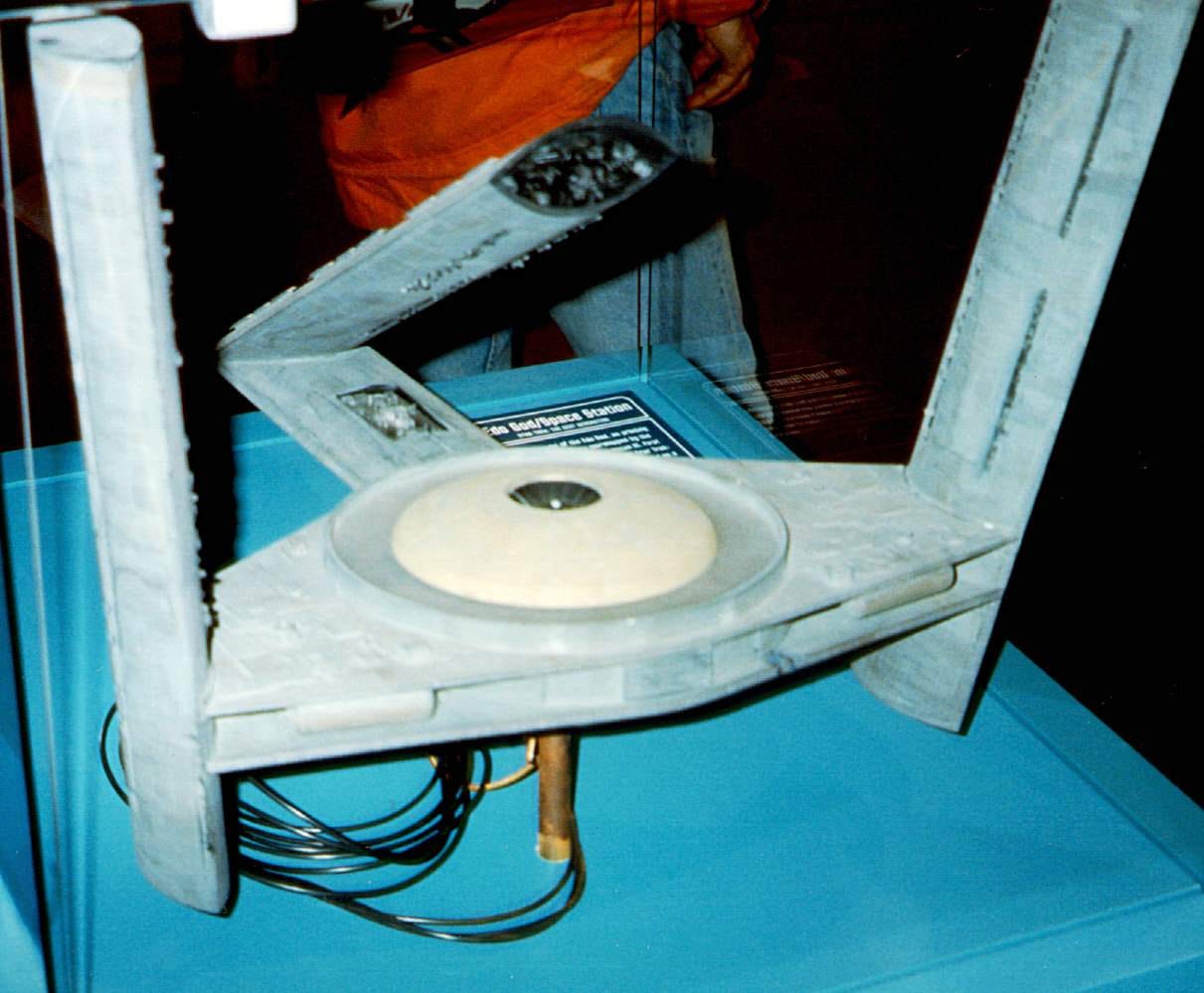
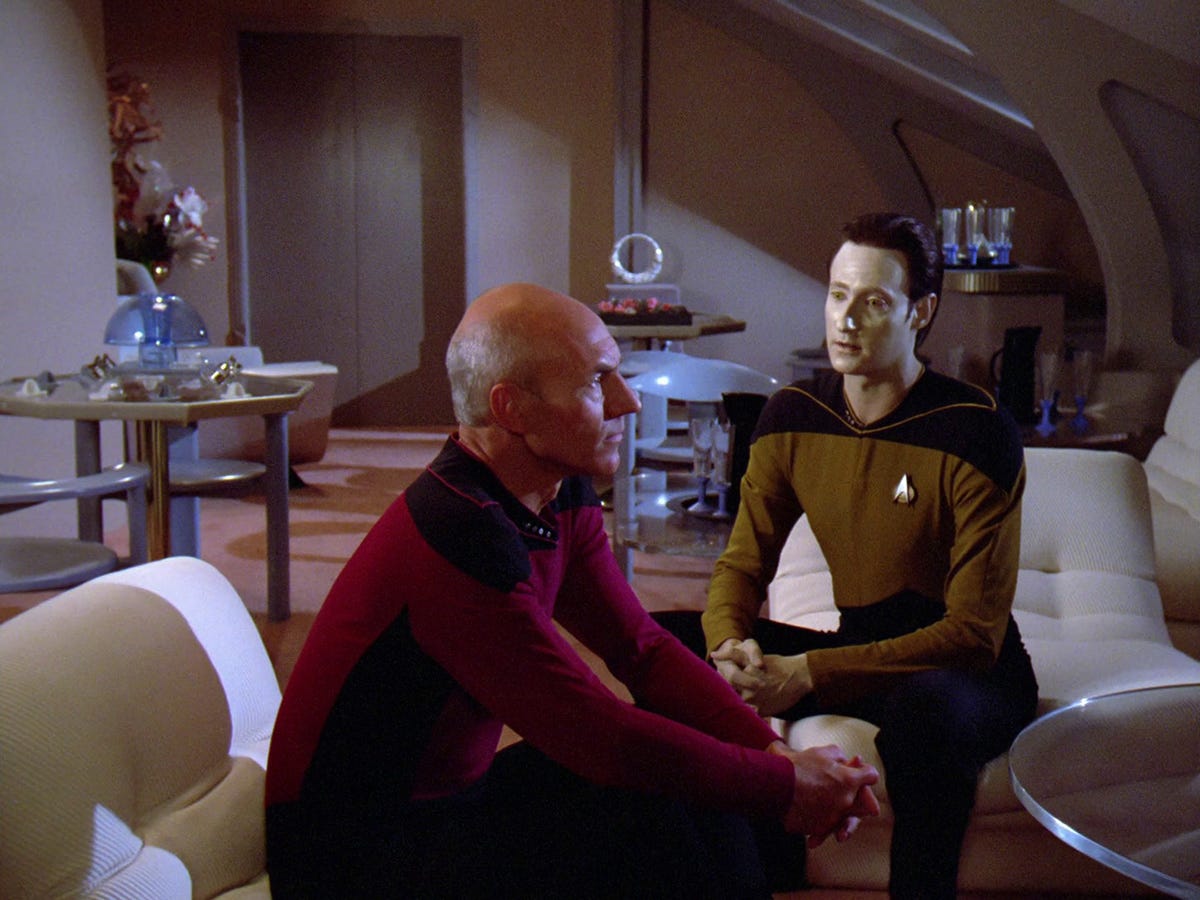
At least we get sexualized costumes for both genders in this episode. I guess that's better? And I think Beverley Crusher deserves a shout out for being the mother of the kid that Piccard refuses to say whether he's going to save. Prime directive my butt.